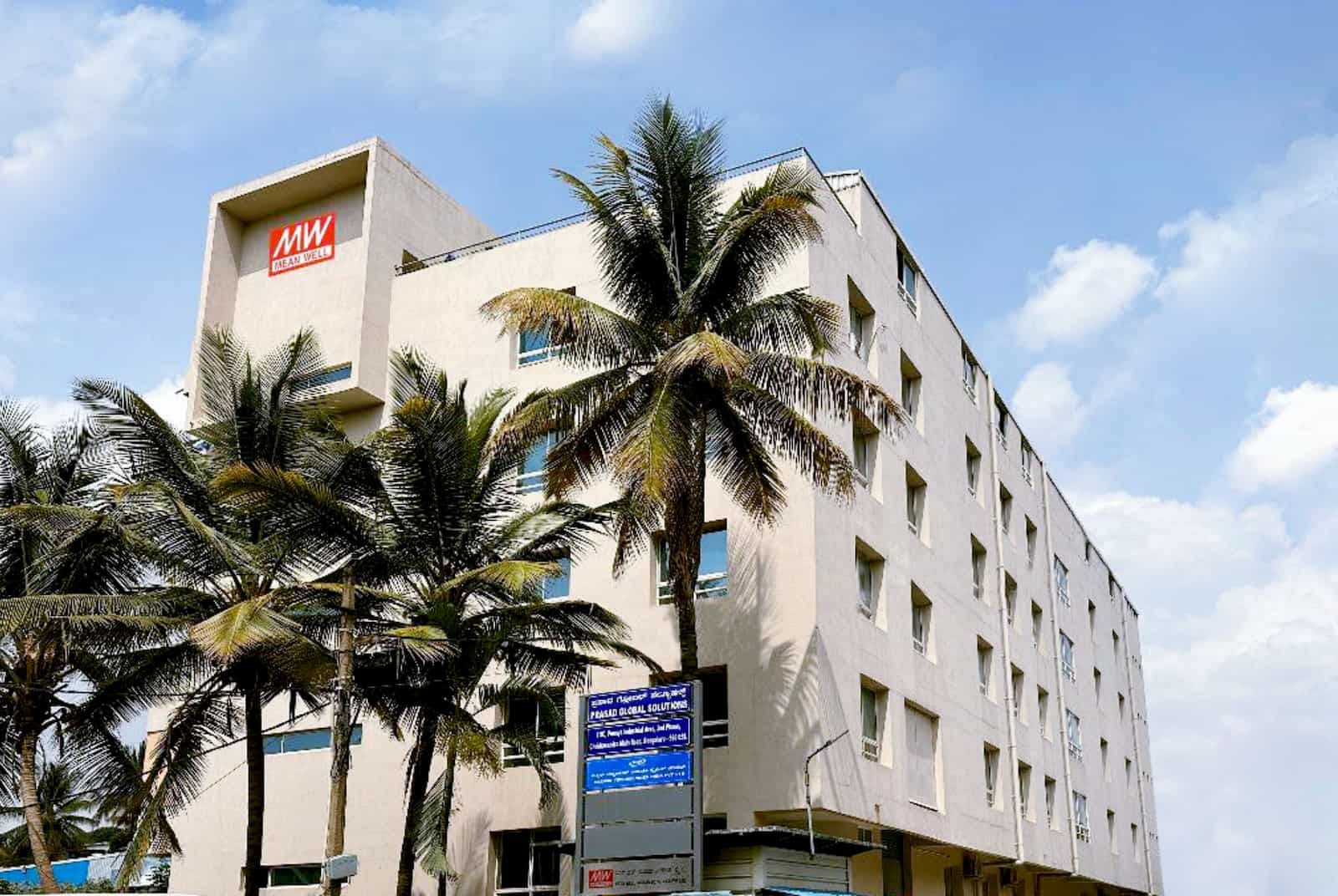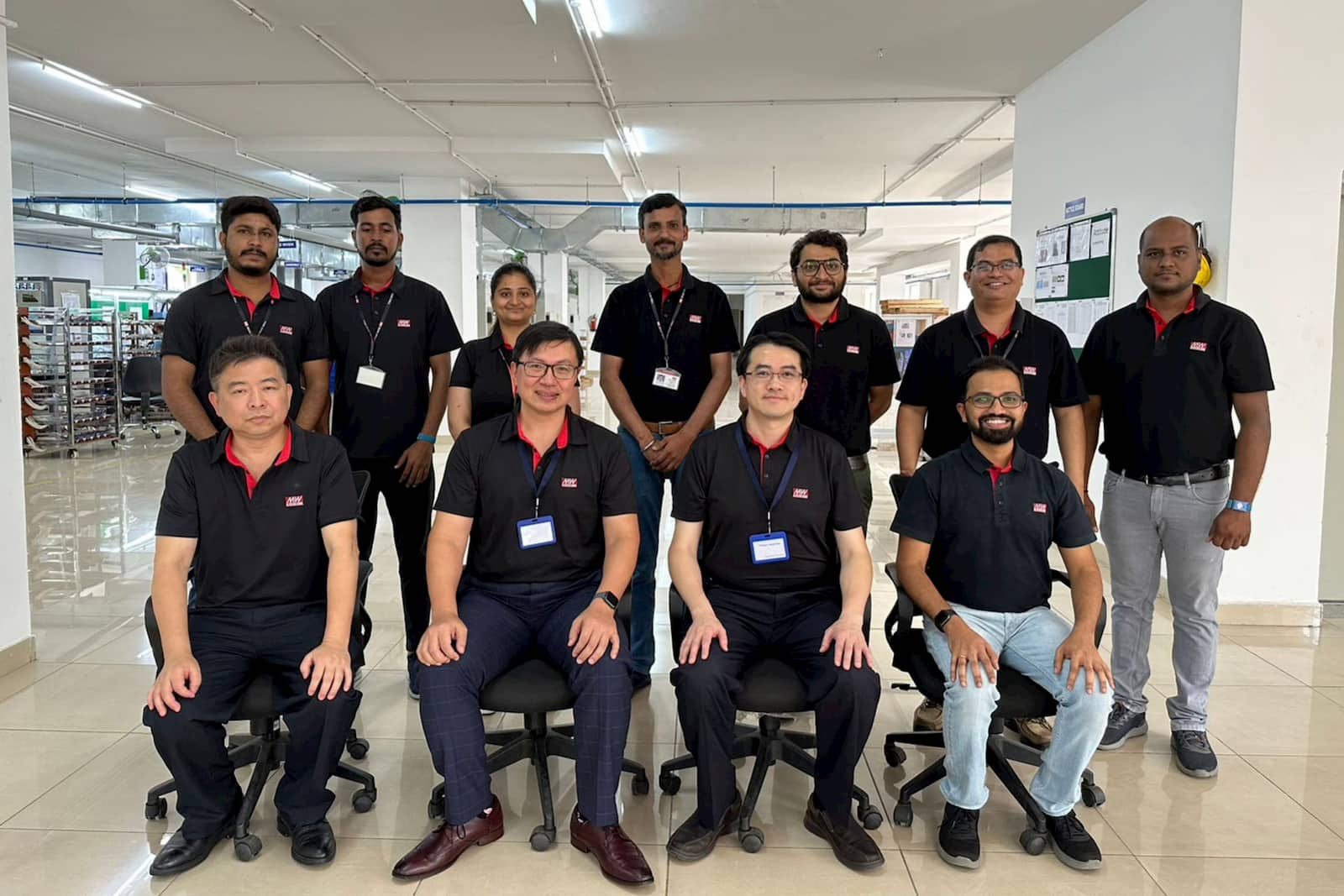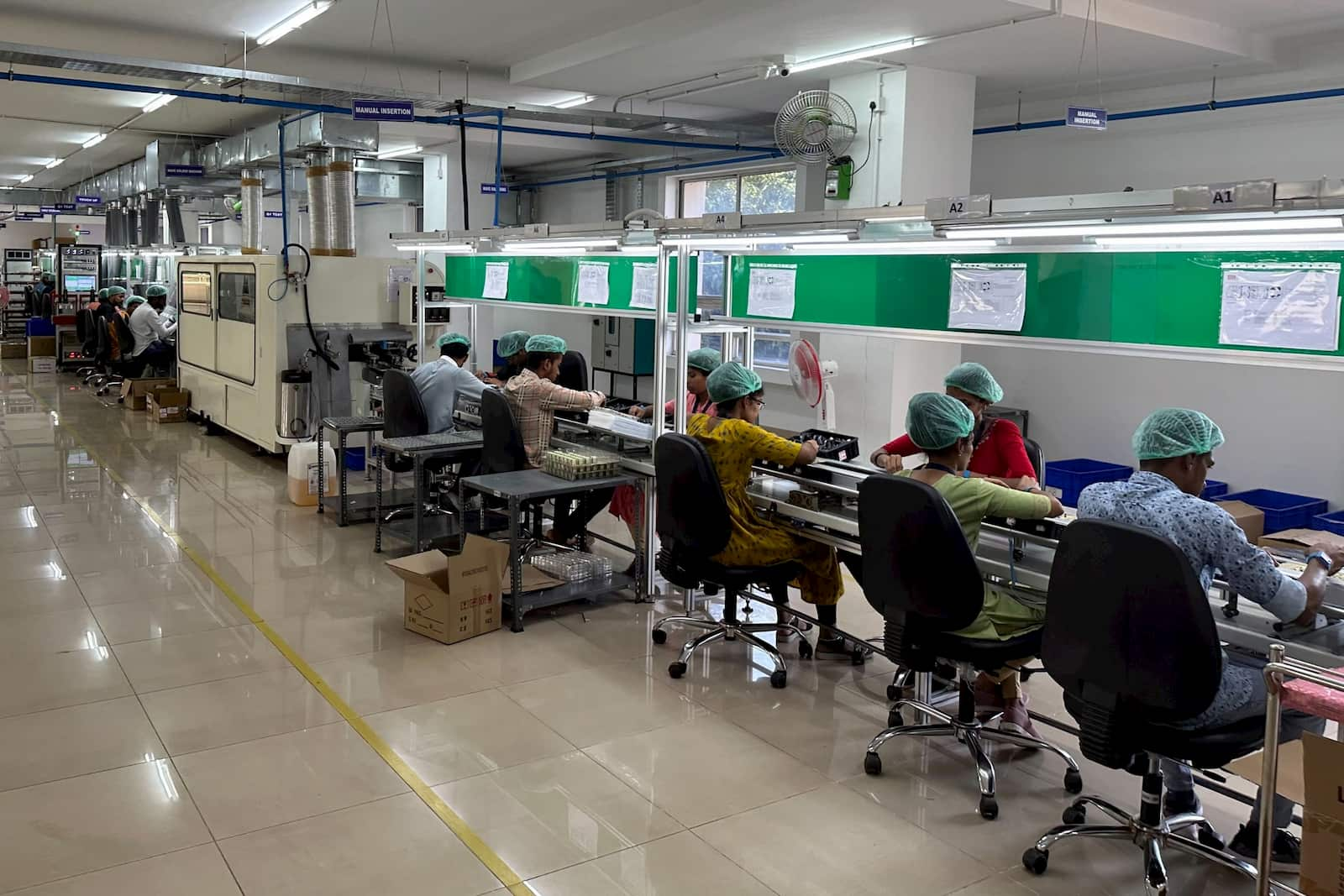Fully committed to emerging markets, MEAN WELL achieves rapid growth in India

Source:MEAN WELL
A car races along an access road for Kempegowda International Airport, through an area that not long ago was nothing but barren land. Now however, it's home to industry giants like Amazon, Boeing, and Foxconn. MEAN WELL, a global leader in standard power supplies, has set up its first production line in this newly prosperous and exciting "Silicon Valley of India." The company aims to establish a strong presence in the domestic market of South Asia's new global powerhouse.
Views
Fully committed to emerging markets, MEAN WELL achieves rapid growth in India
By MEAN WELLSponsored Content
Over 20 years ago, Jim O'Neill, former chief economist at Goldman Sachs, introduced the concept of the BRIC countries, positing India as a future economic star performer. However, India's rapid ascent only became evident following the transformative changes brought by the pandemic, geopolitical shifts, the massive domestic demand driven by its huge population, and the frenetic influx of global manufacturers, all of which allowed India to enjoy the sweet fruits of an economic boom.
Long before the pandemic, MEAN WELL had already identified countries with significant business potential, steadily expanding into these emerging markets. The company focused on the "BRIK JAMP KTV" markets—Brazil, Russia, India, South Korea, Japan, New Zealand, Malaysia, the Philippines, Kansas in the United States, Turkey, and Vietnam. After several years of strategic development, India and Turkey have emerged as targets for even greater attention.
MEAN WELL's decision to shift more focus to India now isn't driven solely by the country's low production costs. Instead, the move is part of a strategy to diversify risk and target the country's immense domestic market. The company is preparing to localize its operations and boost efforts to expand its reach in South Asia.
India's limitless potential is underscored by advantages such as abundant labor and a vast market
In late July of this year, Arvind Panagariya, an Indian-born economics professor at Columbia University, wrote an article in Time magazine discussing whether India's economic power could one day surpass that of the United States. He pointed out that even before the outbreak of the pandemic, India had maintained an impressive 15-year streak of 8% GDP growth, while the United States had seen less than 2% growth during the same period. If India continues to close the gap with America, it may one day become the world's largest economy.
However, when looking at current per capita GDP, India still has a long way to go before it can challenge the leading global economies. At present, India's per capita GDP is less than 20% of China's and only 5% of America's. Nevertheless, Panagariya believes that by harnessing its capital resources and abundant workforce, India has virtually limitless growth potential as it continues on a path to overtake China and catch up with the United States.
India's key advantage lies in its large and youthful workforce. According to estimates released by the United Nations, India surpassed China this year to become the most populous country in the world. Of the population worldwide aged 25 and under, one in five is from India. India stands in stark contrast to other regions that are grappling with aging populations. The abundant labor pool that a youthful population enables brings the potential for greater productivity and innovation, signaling India's bright growth prospects and its rising international profile.
Localizing and expanding in the "Silicon Valley of India"
MEAN WELL has been cultivating the Indian market for over 20 years. To expand its presence and enhance competitiveness, it had already been preparing to establish a factory in Bangalore even before the outbreak of the pandemic.
 MEAN WELL CEO Ted Cheng and Sales Director of Asia & AN Leo Wu (front row, second from right and second from left) lead the MEAN WELL India team as it continues to develop the local market.(Source:MEAN WELL)
MEAN WELL CEO Ted Cheng and Sales Director of Asia & AN Leo Wu (front row, second from right and second from left) lead the MEAN WELL India team as it continues to develop the local market.(Source:MEAN WELL)
The key driver of MEAN WELL's approach is India's high tariffs and trade barriers, especially under Prime Minister Modi's Make in India initiative. Despite having announced market liberalization reforms as early as 1991, India has consistently imposed high tariffs and used regulations such as anti-dumping measures to protect domestic industries. To cite a specific example, the country levies a 12% import tariff on industrial power supplies, and tariffs for LED power supplies run as high as 27%. An approach that relied on continuing to import finished products would have faced formidable obstacles to future market expansion.
To overcome these challenges, MEAN WELL has chosen Bangalore in southern India as its stronghold. Bangalore offers many advantages, such as a high elevation that results in a relatively cool and dry climate, and its position as the "Silicon Valley of India." The city is home to some of India's oldest and most prestigious research and educational institutions, including the Indian Institute of Science and the Indian Institute of Astrophysics. Bangalore has also become the preferred destination for multinational manufacturers, with well-known players like ABB and Wistron located near MEAN WELL's India branch.
However, having favorable geographical and skilled workforce advantages isn't enough. Investing in India can be challenging for other reasons, and many companies have faced setbacks. MEAN WELL managed to not only complete construction of its factory during the most challenging times of the pandemic, but also turned a profit in its first year of production. How did the company achieve this remarkable feat?
Building a factory that turns a profit during its first year, and in the middle of a pandemic
First of all, MEAN WELL was able to put together an elite local team. Although not large, the team worked in solidarity to overcome pandemic-related limitations and maintain steady progress. Secondly, MEAN WELL established a comprehensive standard operating procedure to systematically preserve the know-how necessary to more easily replicate the complex process of setting up a factory.
Faced with the challenges of pandemic lockdowns just as the factory's premises were leased, the MEAN WELL team had to create the floor plan step by step while communicating remotely. Apart from filming instructional videos on setting up the production area, MEAN WELL also drew on its prior experience with building out a similar facility in the Philippines.
Stepping into the orderly MEAN WELL India facility, one finds the two-story space includes not only offices and a warehouse but also a complete power supply assembly line. After a profitable start in the first year of production, MEAN WELL India is currently planning a second production line and scouting for suitable land to purchase, with a goal of setting up an entirely self-built production base within five years.
 MEAN WELL India's production line incorporates an automated SMT process, and annual production is expected to reach nearly one million units in the future.(Source:MEAN WELL)
MEAN WELL India's production line incorporates an automated SMT process, and annual production is expected to reach nearly one million units in the future.(Source:MEAN WELL)
At the current state of development in India's power supply market, LED and industrial power supplies predominate. However, looking ahead, MEAN WELL will align with the Indian government's efforts to expand sectors such as 5G communications and green energy (onshore wind turbines) by developing a broader range of power supply offerings. Additionally, MEAN WELL's plans include expanding its lineup of distributors from the current four to approximately ten nationwide, increasing the visibility of the MEAN WELL brand in the South Asian market.






